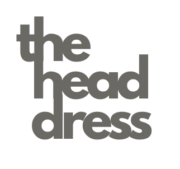Mythology has long served as a foundational element of human culture, offering stories that explain the mysteries of existence, the origins of the universe, and the nature of human fate. From ancient civilizations to modern storytelling, myths continue to influence how societies conceive of destiny and the pursuit of rewards. These narratives not only reflect cultural values but also shape individual perceptions of luck, effort, and divine justice.
In this article, we explore how mythology underpins our ideas of fate and reward, illustrating these concepts with historical examples and modern interpretations. We will see how ancient mythologies laid the groundwork for contemporary symbols and narratives, including how they are reflected in entertainment and gaming, such as the popular slot game that tumble win was tasty.
- Introduction to Mythology and Its Influence on Human Perception of Destiny and Rewards
- Foundations of Mythological Concepts of Destiny
- Mythology as a Framework for Understanding Rewards and Consequences
- From Ancient Temples to Modern Games: Evolving Symbols of Destiny and Rewards
- The Psychological Impact of Mythology on Personal Ideas of Fate
- Cultural Variations in Mythological Concepts of Destiny and Rewards
- The Modern Reinterpretation of Mythological Rewards in Popular Media and Gaming
- Critical Perspectives: The Limitations and Ethical Implications of Myth-Derived Ideas of Destiny
- Deep Dive: The Non-Obvious Connections Between Mythology and Material Culture
- Conclusion: The Continuing Legacy of Mythology in Shaping Our Ideas of Destiny and Rewards
Introduction to Mythology and Its Influence on Human Perception of Destiny and Rewards
Mythology encompasses a rich collection of stories, legends, and symbols passed down through generations, often serving to explain natural phenomena, human origins, and moral values. In both ancient and modern societies, myths have played a crucial role in shaping collective worldview, particularly regarding concepts of fate, reward, and divine justice.
These stories are not merely entertainment; they encode societal ideals and expectations. For example, the heroic narratives of Greek mythology emphasize virtues like bravery and piety, often rewarded with immortality or eternal honor. Such stories influence cultural perceptions, fostering beliefs that divine forces reward virtue and punish hubris or vice, thus guiding moral behavior and personal aspirations.
Foundations of Mythological Concepts of Destiny
How Ancient Myths Explain the Origin of Fate and Predestination
Ancient myths often depict fate as an unchangeable force woven into the fabric of reality. For instance, the Greeks believed in the Moirai, or Fates—three goddesses who spun, measured, and cut the thread of human life, symbolizing the inescapable nature of destiny. These stories reinforced the idea that some aspects of life are predetermined, shaping societal acceptance of one’s personal lot.
The Role of Gods and Divine Forces in Determining Human Destiny
In mythologies worldwide, divine beings are central to the creation and enforcement of fate. The Greek gods, such as Zeus or Apollo, often intervene in mortal affairs, rewarding or punishing based on moral conduct. Similarly, Norse gods like Odin determine the destiny of warriors, especially in the context of Ragnarok. These divine influences underpin societal notions that moral virtue aligns with favorable fate, reinforcing the importance of divine favor in life’s outcomes.
Examples from Greek Mythology: The Moirai (Fates) and Their Significance
The Moirai exemplify the ancient understanding of destiny as an immutable force. Clotho spun the thread of life, Lachesis measured its length, and Atropos cut it, signifying the inevitable end. Their impartial control highlights a worldview where divine justice and fate are beyond human influence, fostering acceptance of one’s predetermined path.
Mythology as a Framework for Understanding Rewards and Consequences
The Concept of Divine Justice and Moral Recompense in Myths
Many myths depict a universe where divine justice ensures moral behavior is ultimately rewarded. The story of King Midas, for example, warns of greed leading to loss, illustrating that moral choices influence divine favor. Similarly, the Greek myth of Pandora’s box suggests that curiosity and disobedience have consequences, but also that hope remains as a reward amid chaos.
Tales of Heroes and Their Rewards: Lessons and Societal Values
Heroic myths often serve to exemplify societal ideals. Hercules’ Twelve Labors demonstrate strength and perseverance rewarded with immortality, reinforcing the value of effort and virtue. Such stories teach that moral excellence and resilience lead to divine rewards, shaping cultural expectations around success and reward systems.
The Symbolism Behind Mythological Rewards: Immortality, Honor, Eternal Life
Mythological rewards often symbolize the ultimate human aspirations. Immortality, as granted to heroes like Achilles or to divine beings, signifies eternal recognition. Honor and eternal life serve as metaphors for lasting legacy and societal respect, illustrating how myths encode the desire for transcendence beyond mortal limitations.
From Ancient Temples to Modern Games: Evolving Symbols of Destiny and Rewards
Architectural Symbols: Marble Columns Representing Strength and Eternity in Greek Temples
Ancient Greek temples, constructed with enduring marble, embodied the divine and eternal truths conveyed through myth. Columns symbolized stability and the unchanging nature of divine justice. These structures physically manifested mythological ideals, linking material culture to abstract notions of fate and reward.
Transition from Mythological Symbolism to Contemporary Entertainment and Gaming
Today, myth-inspired symbols continue to influence popular culture, especially in entertainment and gaming. Modern slot games often draw on mythological themes to evoke a sense of epic adventure and divine reward. This evolution demonstrates how ancient ideas of fate and divine justice remain relevant, now embedded in digital interfaces and narratives.
Case Study: Gates of Olympus 1000 as a Modern Illustration of Myth-Inspired Reward Systems
The that tumble win was tasty game exemplifies how mythological themes translate into contemporary reward systems. Featuring gods like Zeus and symbols of divine power, the game encapsulates the idea of divine influence on luck and success. Its mechanics evoke the timeless allure of myth, where divine favor can lead to bountiful rewards, echoing ancient stories of heroes and immortality.
The Psychological Impact of Mythology on Personal Ideas of Fate
How Myths Influence Individual Beliefs About Luck, Destiny, and Effort
Stories from mythology often reinforce beliefs that luck and effort are interconnected. For example, the hero’s journey—whether Odysseus or King Arthur—emphasizes perseverance rewarded by divine or cosmic forces. Such narratives foster a subconscious association that diligent effort can influence fate, even in a world where some aspects are predestined.
The Role of Storytelling in Shaping Expectations of Reward and Justice
Stories serve as mental frameworks for understanding reward systems. When individuals hear tales of heroes overcoming adversity and receiving divine blessings, it cultivates hope and motivation. Modern media continues this tradition, subtly guiding perceptions that effort and virtue can influence personal destiny, even amid societal inequalities.
Non-Obvious Insight: The Subconscious Association of Divine Justice with Material Success
Research indicates that mythological narratives shape subconscious beliefs linking divine justice to material rewards. This association can influence behavior, leading individuals to pursue success as a form of divine favor. Recognizing this connection helps understand why modern reward systems, such as gambling or games of chance, often tap into myth-inspired imagery to evoke feelings of divine reward and justice.
Cultural Variations in Mythological Concepts of Destiny and Rewards
Comparing Greek, Norse, and Eastern Mythologies
Different cultures have unique mythological frameworks. Greek mythology emphasizes divine justice through gods like Zeus and the Moirai, while Norse myths focus on fatalistic themes, such as the inevitability of Ragnarok and the valor of fallen warriors rewarded in Valhalla. Eastern mythologies, like those from China and India, often incorporate concepts of karma and reincarnation, where actions influence future rewards across lifetimes. Despite differences, a common theme is the belief that divine or cosmic forces regulate destiny and reward.
How Different Cultures Interpret Divine Intervention and Reward Mechanisms
While Greeks saw gods as active arbiters of fate, Eastern traditions often view divine intervention as karmic balance, guiding individuals toward moral harmony. Norse myths depict a more stoic acceptance of destiny, emphasizing heroism in the face of inevitable doom. These interpretations influence contemporary perceptions of fate, reward, and the moral universe across cultures.
The Universality and Diversity of Myth-Based Ideas of Fate
Despite cultural differences, the belief that higher powers determine human destiny remains widespread. This universality underscores the deep-rooted human desire to find meaning in life’s uncertainties. At the same time, diverse mythological stories reflect unique societal values, illustrating how cultural context shapes the specific symbols and mechanisms of fate and reward.
The Modern Reinterpretation of Mythological Rewards in Popular Media and Gaming
How Contemporary Media Reimagines Mythological Themes of Destiny
Modern entertainment often draws on mythological motifs to craft narratives of heroism, divine intervention, and reward. Films like Marvel’s Thor or video games inspired by Greek gods evoke divine powers and epic quests, reinforcing the idea that fate and divine favor are central to success stories. This reimagining makes myth accessible and relevant in contemporary culture.
The Influence of Myth-Based Narratives on Online Gambling and Slot Games
The gambling industry leverages myth-inspired themes to attract players. Symbols of gods, divine reward, and epic quests are common in slot machines, creating an aura of chance intertwined with divine favor. Such themes tap into deep-seated beliefs about luck, fate, and justice, making games more engaging and emotionally resonant. An example is that tumble win was tasty, illustrating how mythological motifs continue to influence modern gaming experiences.

